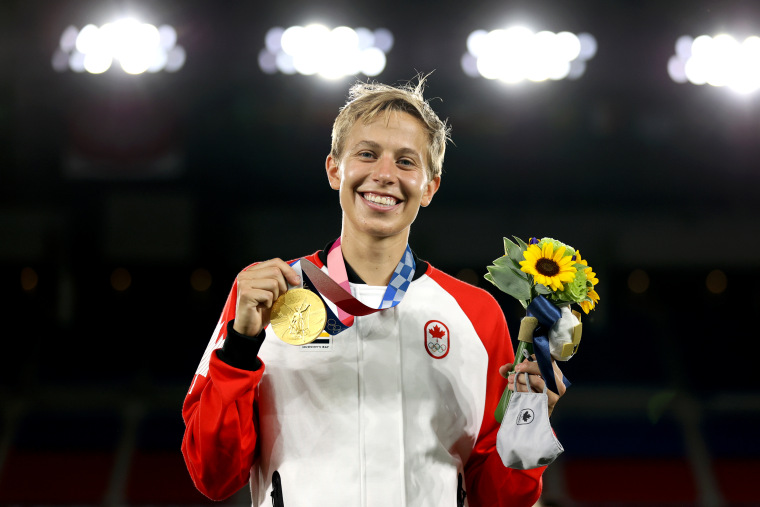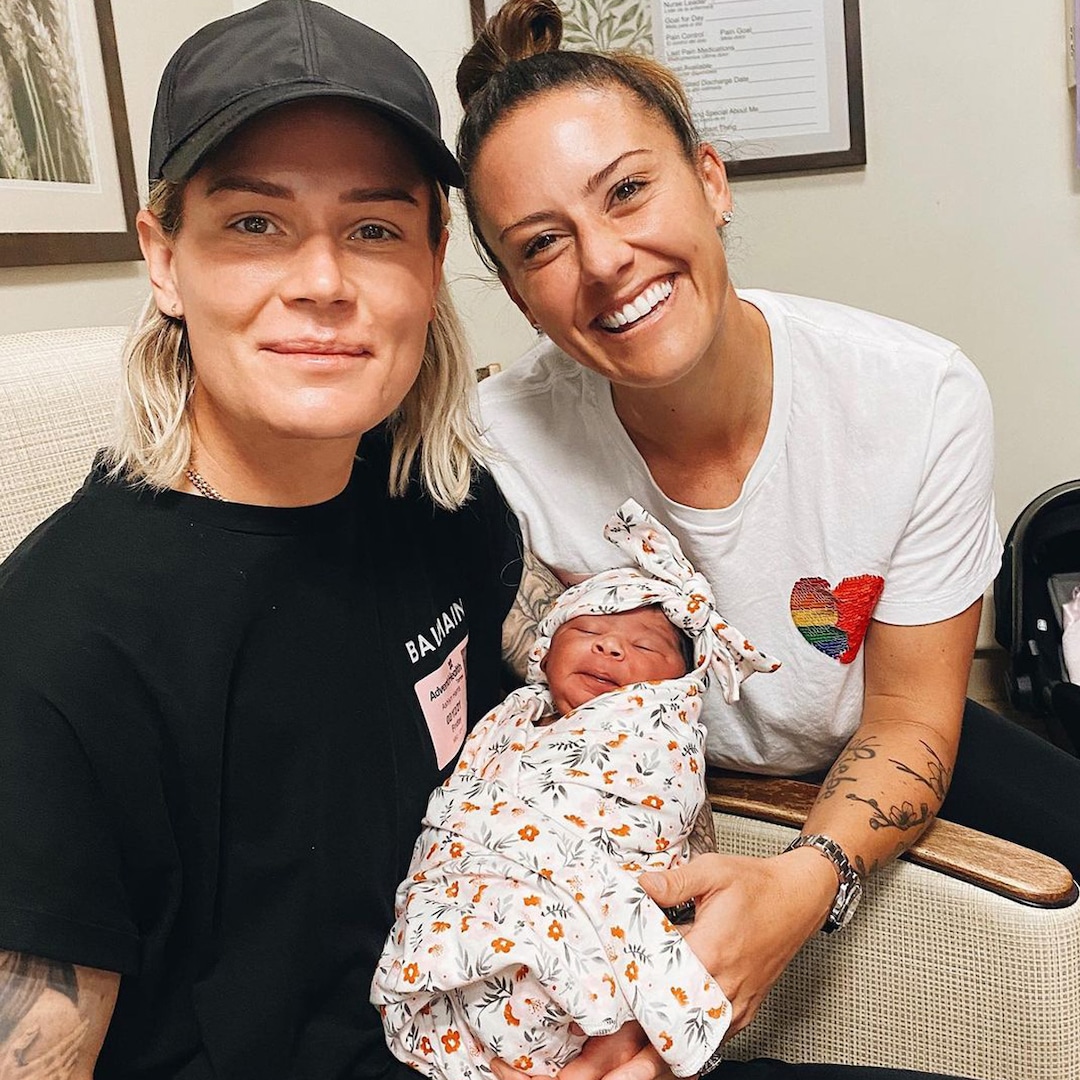Fun fact about me: I consider myself to be a retired jock. Throughout my life, I have dabbled in soccer, basketball, karate, lacrosse, swimming, field hockey, gymnastics, and dance. While I played lacrosse and basketball throughout high school, the main sport that formed my childhood was soccer. As the child of two college-level goalkeepers, I started playing recreational soccer at the age of four and became a goalkeeper for a full year-round travel soccer team at the age of 11. I even tried out for the Olympic Development Team for PA at the age of 13 and was almost offered a sport, but I ended up burning out of the sport at the end of eighth grade and have not played since. However, my love for watching the sport has not disappeared even if I have not played in years…I mean, how could it disappear when essentially every single woman’s soccer player is gay?
/cdn.vox-cdn.com/uploads/chorus_asset/file/11707275/usa_today_10879767.jpg)
The USWNT wearing pride jerseys in support of the LGBTQ+ community.
While I am kidding, I am also not kidding – in the list of 186 out LGBTQ+ athletes at the 2020 Tokyo Olympics, woman’s soccer had the highest number of out athletes with over 40. The USWNT, in particular, had five members on their roster – Tierna Davidson, Adrianna Franch, Megan Rapinoe, Kristie Mewis, and Kelly O’Hara – as well as two well-known players, Ashlyn Harris and Ali Krieger, not competing due to the adoption of their daughter, Sloane, earlier in the year. Additionally, the USWNT has a few players who are now veterans of the team who identify as LGBTQ+, most famously, Abby Wambach. As a huge USWNT fan (like waking up for their 4 AM Tokyo matches type fan), their collective pride in their LGBTQ+ athletes and identities is a factor that has kept me drawn to the sport even after I stopped playing.
And so, even if my initial claim of every woman’s soccer player being gay was not entirely true, I am declaring it a fact that woman’s soccer is one of the most, if not the most, progressive sports in terms of their representation and civic engagement. To start, woman’s soccer did not appear on the international stage until the 1991 World Cup in China and in the Olympics until the 1996 Atlanta Games – only 30
/cloudfront-us-east-1.images.arcpublishing.com/pmn/J27PDR2J3BBPPGWDQUXRNKDFWU.jpg)
Two USWNT and Chicago Red Star’s players Julie Ertz (left) and Casey Short (right) shared a moment during the national anthem of a NWSL game.
years of international playing compared to the more than a century the men have had (Men’s soccer appeared in the Olympics in 1900). Yet in this relatively short time, women’s soccer has represented a variety of causes and pushed against inequity, especially in the USA where civic issues are in a surplus. Most famously, the USWNT has been in a gender pay equity battle with the US Soccer Federation for years because even though they have won significantly more world tournaments than the men (4 versus 0 in World Cups…), the players are not paid significantly less than their male counterparts. Additionally, the USWNT has taken strong stances as a collective in supporting the Black Lives Matter movement, and most recently, many individual players who play on the USWNT and in the NWSL have been vocal advocates in supporting and believing their league mates as they have spoken out about sexual misconduct by NWSL coaches. Finally, while not related to the USWNT, Quinn from Team Canada was the first trans and nonbinary identifying to medal in the Olympics; while it’s great that they won gold against Sweden, I have still not totally recovered from the semi-final match where Canada upset the USWNT (Did I wake up at 4 AM to watch them lose? Yes. Do I want to talk about it? No.)
If we are reviewing what you should be learning from this blog post, the number one lesson is that woman’s soccer is the coolest sport ever. Beyond the embodiment of progress and awesomeness the players represent when they are on the field, they are also incredibly cool on social media and sometimes even share the gayest content ever. Here are my favorite gay soccer moments of the past year:

Quinn wins a gold medal with Team Canada during the 2020 Tokyo Olympic Games.

Sue Bird and Megan Rapinoe (who are engaged!) after Sue won a gold medal at the 2020 Tokyo Olympics.

Ashlyn Harris and Ali Krieger with their daughter Sloane.

Sam Kerr and Kristie Mewis share a moment of “sportsmanship” after Australia lost to the US in the quarterfinals and then confirmed they were totally dating a week later.
I think it is one of the most amazing things to feel so in tune and connect to the sport that you play. Especially in such an emerging culture of the LGBTQ+ community, I think it is empowering and gratifying to see it represented in sports, especially sports that you love. Unfortunately, I cannot relate to the fact that soccer is the “coolest” sport ever, because, for me, the coolest sport is volleyball. Like you, I took after a family member and began playing. Volleyball is where I felt most authentic to myself, the most grounded, and weirdly the most comfortable. It has always been an outlet for me and the fact that you experienced that with soccer makes me excited for you. Especially since you have a community within soccer as well to represent you and your sexuality. Overall I thoroughly enjoy your blog and cannot wait to read more. Keep up the good work!
I grew up in a country where soccer is called football, and even I have loved playing football as a sport for my school. I, completely, believe that sports is a great place to represent yourself, by which I mean the true version of yourself, and I love how you have based this post in context with football. I enjoyed seeing the USWNT play in Russia 2018, and I hope that world sport, as a whole, can take strides forward in inclusion.